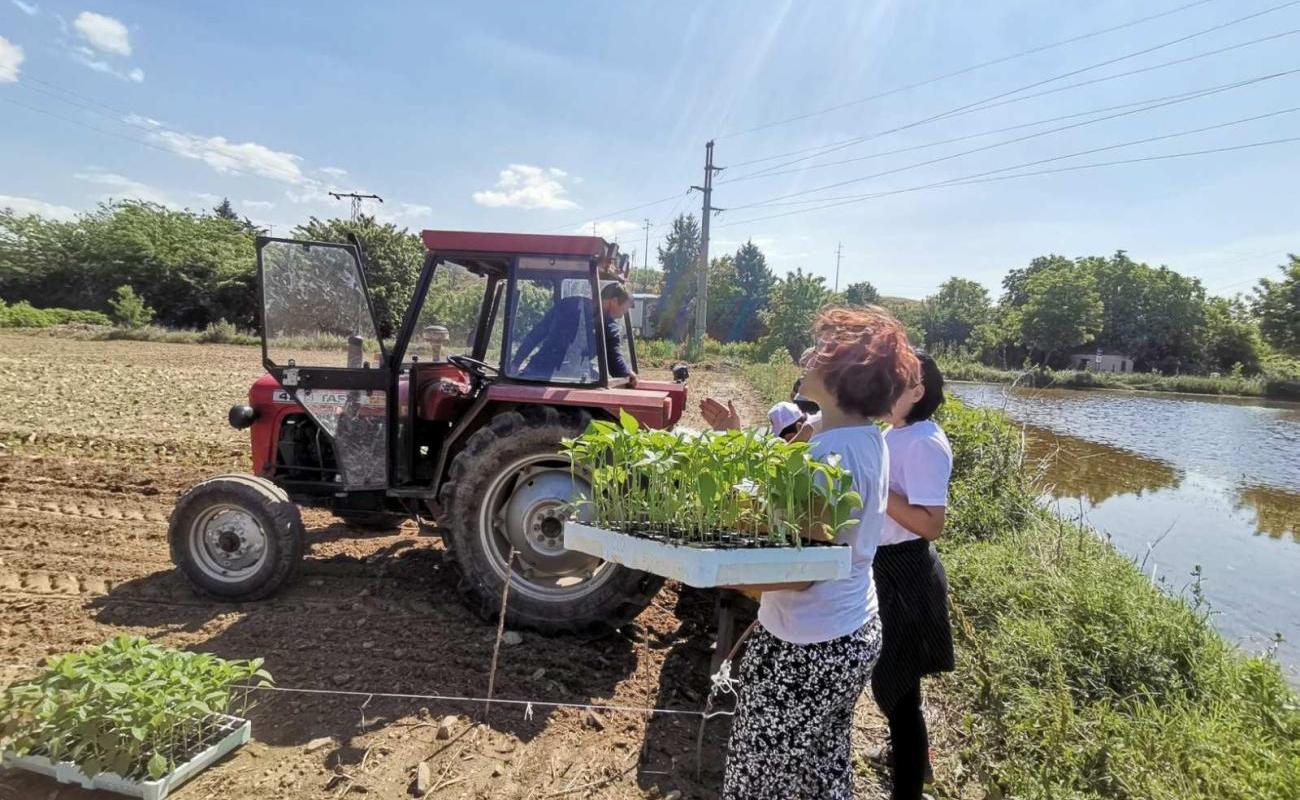FAO and partners lay the foundation for improved seed system management in North Macedonia

FAO provided support to the Ministry of Agriculture, Forestry and Water Economy to promote domestic production of seeds and planting materials
A final event was held in Skopje today to present the results of an FAO regional project aimed at creating enabling environment for enhanced climate resilience in agriculture. The project involved North Macedonia, as well as Armenia, Kyrgyzstan, and Tajikistan. FAO provided support to the Ministry of Agriculture, Forestry and Water Economy of North Macedonia to promote domestic production of seeds and planting material, with a focus on protecting and conserving the genetic diversity of domestic varieties.
The impact of climate change on seed production has serious implications for food security. Limited access and high prices of agricultural raw materials, including high-quality seed material and facilities for their production, storage, and application, further affect the efficiency and resilience of agricultural production to climate change.
To address the growing demand for high-quality, climate-resilient seed material, the Macedonian Ministry of Agriculture received support from FAO to enhance the national seed system. This included improving domestic production of high-quality and climate-tolerant seeds of strategic crops and strengthening national capacities to ensure adequate seed supply to farmers.
As part of the project, the Ministry worked to improve the production and certification of quality seed material and assessed national policies for seed production, distribution, and certification in the country. Together with the Agricultural Institute at the University "St. Kiril i Metodij'' Skopje, demonstration experimental fields were established in Kochani, Skopje, and Tetovo for production, testing, and multiplication of quality seed materials from several strategic crops.
"High-quality and climate-resistant domestic varieties, good national seed policies and capacities to grow new and maintain local varieties - are an important step in transforming food systems in a sustainable way, improving food security, adapting to climate change in agriculture and greater competitiveness. Hence, this project is of great importance for the sustainable development of domestic agriculture'' - said Trajan Dimkovski, State Advisor at the Ministry of Agriculture, Forestry and Water Management of North Macedonia.
With FAO support, a comprehensive analysis was conducted to assess the state of North Macedonia's domestic seed system with regards to selection, conservation, production, policies, and legal framework. The analysis resulted in a set of recommendations aimed at improving the efficiency, sustainability, and climate resilience of the seed system.
Key recommended measures include the development of policies for plant breeding programs, regular funding for plant breeding and conservation, educating farmers and young scientists on seed systems and techniques, creating a register of local varieties, supporting scientific institutions, fostering collaboration between specialists and authorities, ensuring public availability of registers, establishing botanical gardens, conducting multiplication trials for climate resilience, and public awareness raising on the importance of enhancing the seed systems’ climate resilience.
Tania Santivanez, FAO Regional Agricultural Officer, explained that these measures, if implemented, could go a long way in transforming the Macedonian agri-food system in a sustainable way, improving food security, adapting to climate change, and enhancing competitiveness.
Representatives of the Macedonian Ministry of Agriculture were also engaged in a regional training organized by FAO in Armenia. The training provided an opportunity to exchange knowledge and experiences with other participating countries on seed quality management, seed policies, and principles and elements of assurance and seed quality certification.
Ms Kristina Mitic Arsova, FAO National Team Leader, expressed gratitude to all partners and stakeholders who had contributed to the success of the project. She emphasized that the project has laid a solid foundation for future interventions to improve the national seed system. ‘’The analyses and activities carried out so far would serve as a basis for future specific initiatives to advance the domestic seed system’’ - she concluded.
